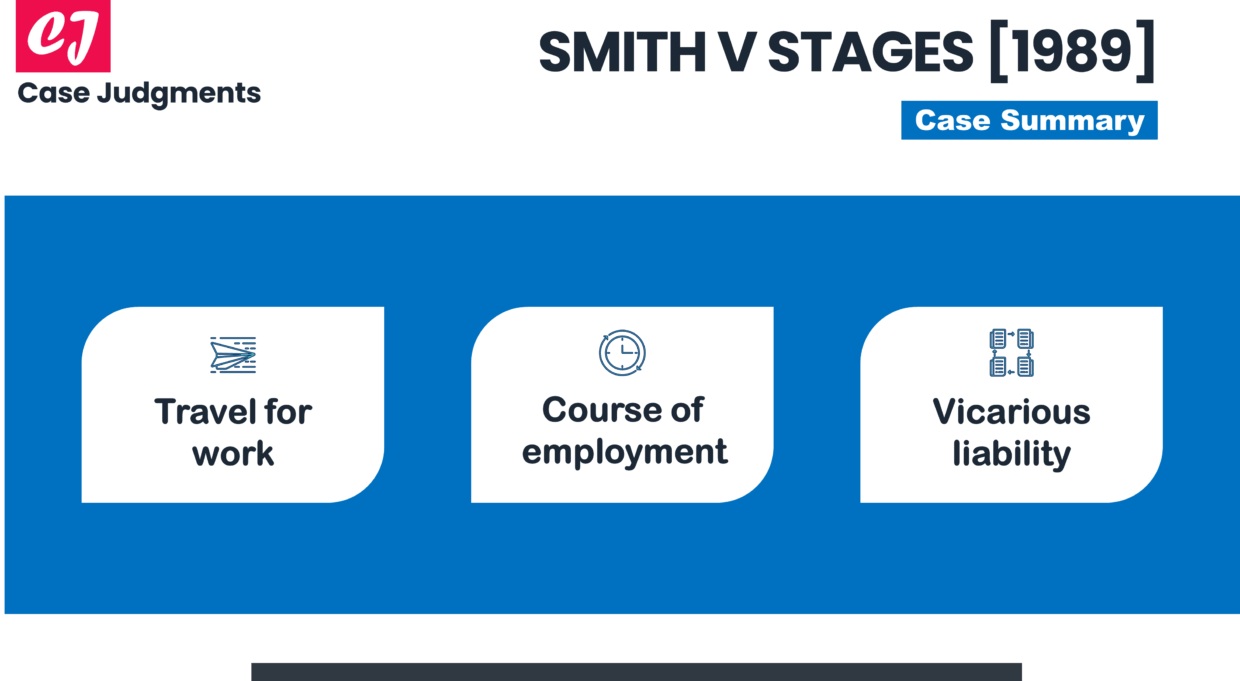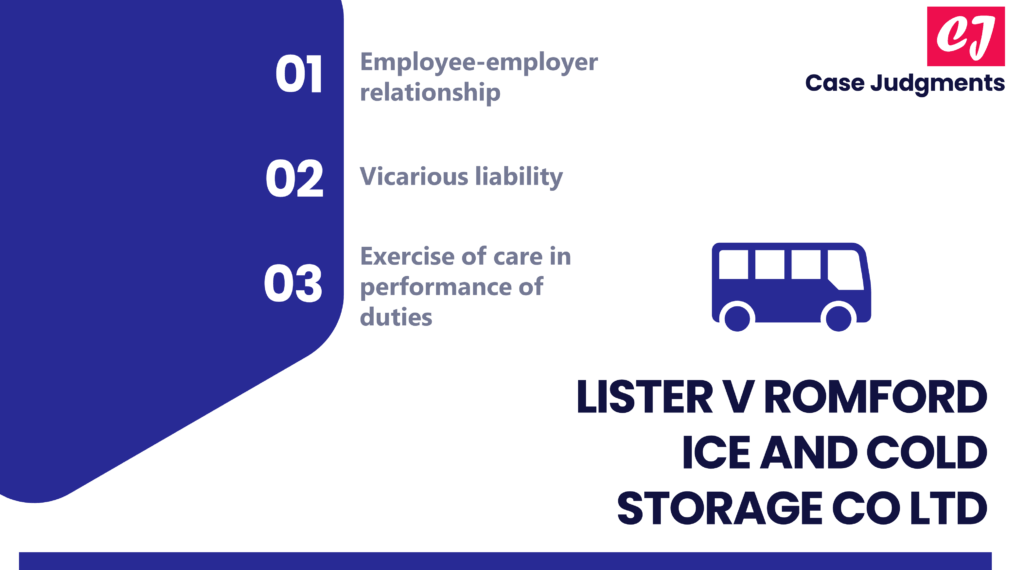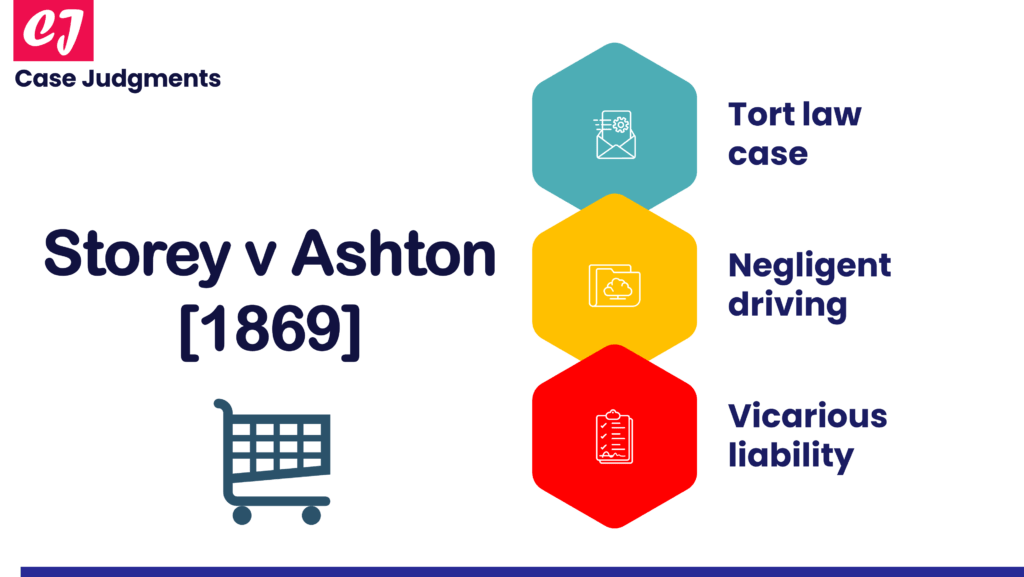
A Summary of Smith v Stages [1989] Case
Case name & citation: Smith v Stages [1989] AC 928; [1989] 2 WLR 529
Court and jurisdiction: House of Lords, UK
Year of the case: 1989
The learned judge: Lord Lowry
Area of law: Vicarious liability for work travel
What is the case about?
The case of Smith v Stages [1989] talks about the vicarious liability of employers with regard to employees travelling to and from work, especially to a different location.
Case facts (Smith v Stages)
Machin and Stages, two employees, were given the opportunity to work at a location different from their usual place of employment and were paid for their time travelling there and back in addition to receiving a travel allowance. Both were injured when a car accident occurred on their way back due to the negligent driving of Stages.
Issue
Could the employer be held vicariously liable for the negligence of Stages?
Judgment of the Court in Smith v Stages
The House of Lords acknowledged that it was unlikely for a person to be acting in the course of their employment if they were travelling to or from their regular place of employment (whatever the means of transport and even if provided by the employer); however, they distinguished the facts of this case from the general rule.
Here, the employees had been paid for the time they had spent travelling to and from the site. It was part of their work and they were paid for the travel time and the whole trip just as they would have been paid on a normal working day.
Hence, their Lordships found that the employer was vicariously liable for the accident.
Even as they were travelling back, they were still going about the employer’s business.
Lord Lowry advised that in the absence of an express condition to the contrary, travel would be considered to be part of the employee’s employment if the employee is obliged to use the employer’s transport by his contract of service, or is travelling on the employer’s time between workplaces or to a workplace that is not his regular workplace, or is travelling in the course of a peripatetic occupation. Any detour or interruption of the journey for any reason other than something incidental to his master’s business, though, would take him outside of the scope of his employment.
Receipt of wages (as in this case) indicates that the employee is travelling on the employer’s time, for the employer’s benefit, and in the course of his employment.
Note:
In general, an employer is vicariously held liable for the torts of his employees that are carried out in the course of employment.For this, the basic principle is that employees are acting in the course of their employment when they are performing what they have been employed to do or anything that is reasonably incidental to their jobs.
List of references:
- https://www.lawteacher.net/free-law-essays/general-law/vicariousliability.php
- http://ndl.ethernet.edu.et/bitstream/123456789/49961/1/11.pdf
- https://assets.publishing.service.gov.uk/government/uploads/system/uploads/attachment_data/file/474073/dmgch66.pdf
You might also like:
More from tort law:

